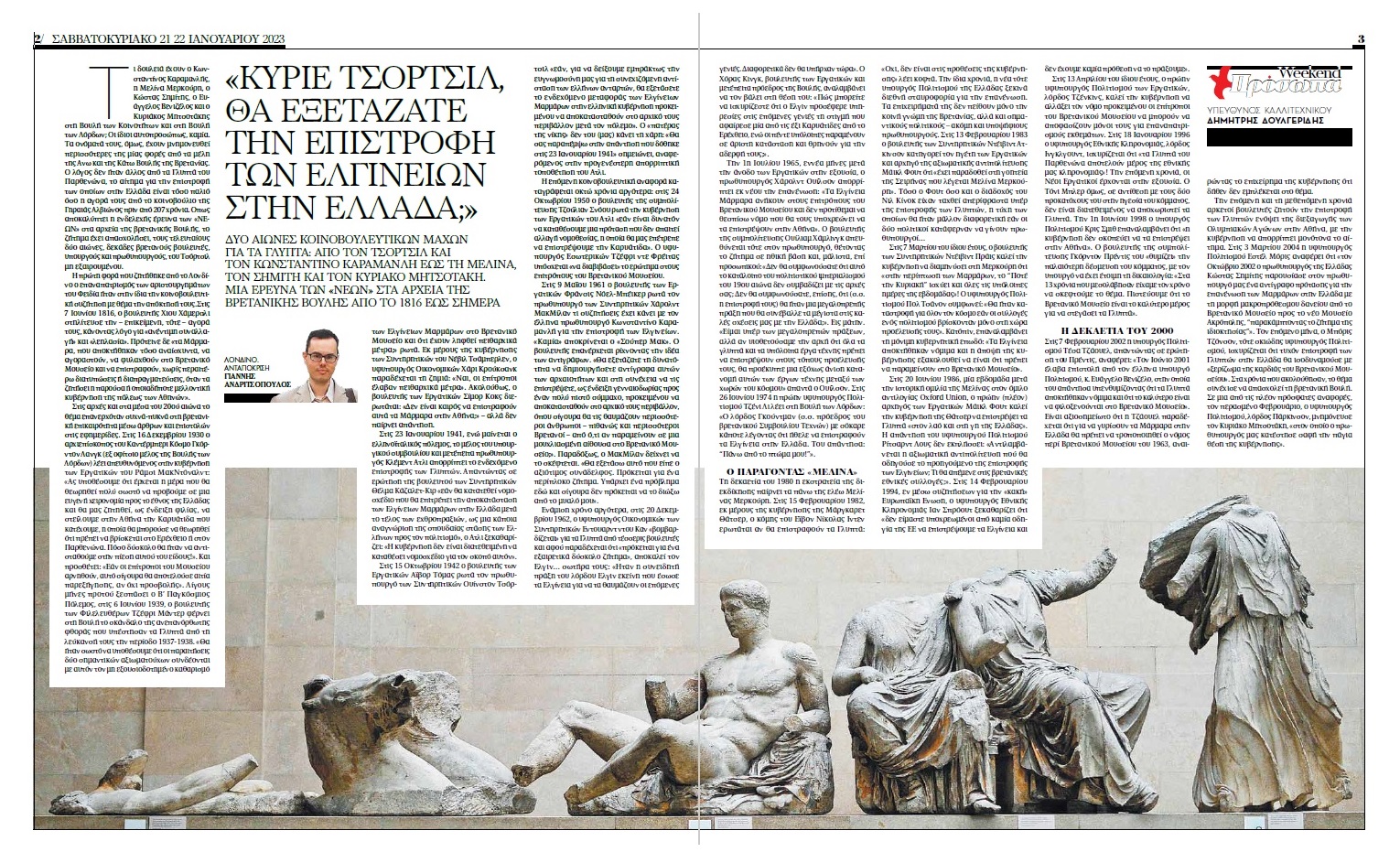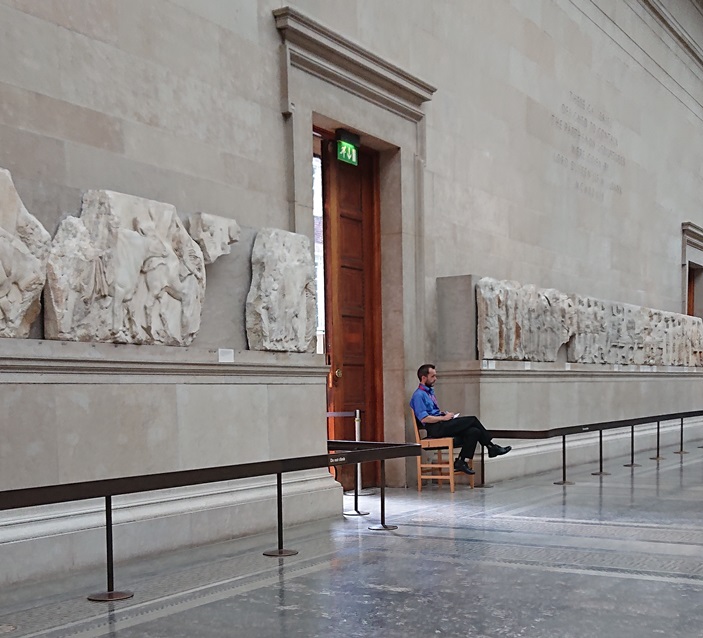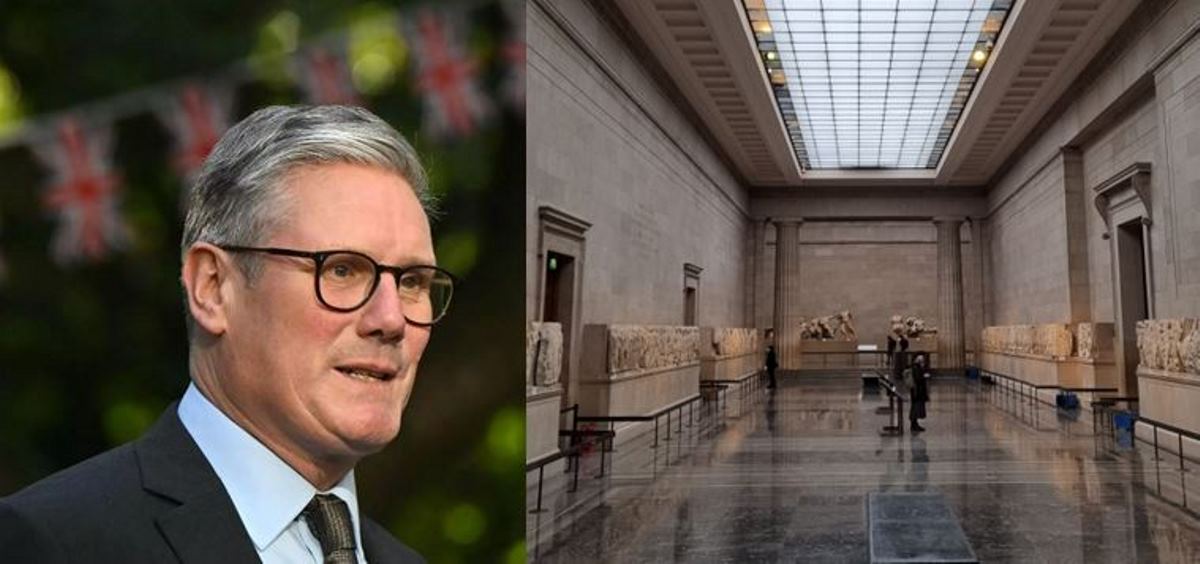Yannis Andritsopoulos, UK correspondent for Ta Nea has researched UK's parliamentary archives and reported on his finding in today's Ta Nea. His article is aptly entitled: 'Research into the archives of the British Parliament: Two centuries of parliamentary battles over the Sculptures.'
"Mr. Churchill, would you consider the return of the Elgin Marbles to Greece?"

Yannis begins with a question, which follows a comprehensive report that takes us back to 07 June 1816 and concludes in February 2022.
What business do Konstantinos Karamanlis, Melina Mercouri, Kostas Simitis, Evangelos Venizelos and Kyriakos Mitsotakis have in the House of Commons and the House of Lords?
As themselves, none. Their names, however, have been mentioned more than once by members of Britain's Upper and Lower Houses.
The reason was none other than the Parthenon Sculptures, the request for the return to Greece, which is as old as their purchase by the parliament of Albion 207 years ago.
As the in-depth investigation of "Ta Nea" in the archives of the British Parliament reveals, the issue has, over the past two centuries, occupied dozens of British MPs, ministers and prime ministers.
The first time London was asked to repatriate Phidias' masterpieces was in the parliamentary debate about their acquisition. On 07 June 1816, Congressman Hugh Hammersley slammed their then-imminent purchase, speaking of a "dishonest transaction" and "looting."
He suggested that "the Marbles, so shamelessly acquired, should be bought, kept in the British Museum, and returned, without further formalities or negotiations, when requested by the present or any future government of the city of Athens."
To read the artricle in full, and in Greek, visit Ta Nea, or for an English translation, the document here.
Successive UK governments when faced with the question about the reunification of these sculptures seem determine not to look at this request as a case in its own right. Yet, no matter how often the response remains unchanged, the thirst to see the surviving sculptures reunited in the Acropolis Museum's top floor, glass-walled Parthenon Gallery is never going to go away.
Saying 'no' repeatedly to Greece is not changing the growing attitude of museum visitors. Is this about power? Probably. Is it about one nation wanting to hang onto its past at the cost of another's need to conserve a peerless collection of sculptures that was removed from a building created over 2, 500 years ago, which still crowns their capital city? Tragically, it would seem just so. Is it disrespect of one nation towards another nations cultural heritage? We hope not.
Let us not forget, that Greece is not asking for all that was removed from the Acropolis before it gained independence. And let us also remember that the British Museum is never going to be denuded of Greek artefacts, it currently has 108,184 of which 6,493 are on display. And once these specific sculptures are reunited with their other surviving half, Greece has offered the UK more artefacts, not seen outside of Greece.
Janet Suzman: "a major piece of research by Yannis! Since these Commons attitudes there has been a huge shift in the public mind-set about cultural appropriations, hence the present majority of people who think the Parthenon Marbles ought to be returned."





Comments powered by CComment